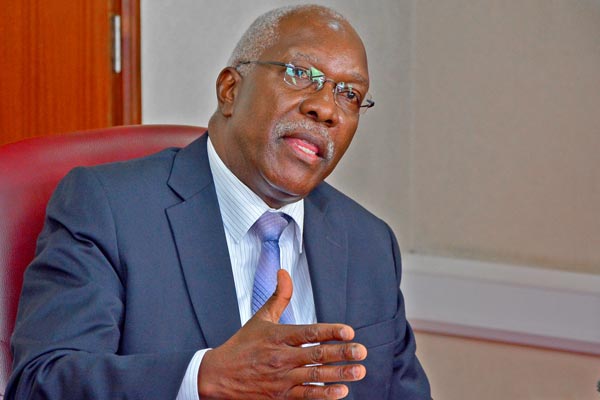
The Auditor General John Muwanga has tasked Bank of Uganda management to explain why they always sell closed banks on the cheap.
Muwanga noted that BoU’s tendency to sell closed banks cheaply has been causing losses to shareholders and liquidators.
Muwanga and his team are currently carrying out an audit on the closure and sale of several banks including Teefe, International Credit Bank, Greenland Bank, Cooperative Bank, National Bank of Commerce, Global Trust Bank and Crane Bank which were sold without regulation or policies in place to guide the identification of purchasers.
For example, in December 2007, Muwanga says BoU signed an agreement with Nile River Acquisition Company to sell the debt portfolio of Greenland Bank, ICB and Cooperative Bank at $5.2m (Shs8 billion).
The debt portfolio comprised secured, poorly secured and unsecured loans amounting to Shs135 billion. This transaction resulted in a variance of Shs126 billion.
It is the controversial sale of Crane Bank that threw a spanner in the works that resulted in Parliament instructing the AG to audit BoU’s sale of commercial banks. Crane Bank which had total assets amounting to Shs1.3 trillion was in January last year sold to Dfcu for a paltry Shs200 billion.
More revealing was that the sale agreement between Central Bank and Dfcu indicated that the Shs200 billion was payment for liabilities.
The agreement also did not state the amount of money paid by Dfcu as a net purchase price; or the payment terms for monies, or the assets (outside branches) that Dfcu was taking over.
The agreement, which excluded shareholders of Crane Bank contrary to the Financial Institutions Act, also did not itemize the list of assets acquired (save for leases).
Muwanga’s team kicked off the audit into BoU last week after Deputy Governor Louis Kasekende’s maneuvers to stop the audit hit a dead end.
Following Parliament’s recommendation to the Auditor General for an audit, Kasekende had on April 19 written to the Attorney General, saying the Auditor General had no authority to audit the Central Bank, arguing that the action would contradict the subjudice rule since cases related to the sale of Crane Bank, one of the principal subjects of the audit are before the High Court.
Kasekende had got the backing of the Solicitor General but Kadaga ruled on the matter, insisting the audit should go on.
“Where any institution needs a clarification on a decision of Parliament, the right office to seek that clarification from, must be the office of the Speaker of Parliament. Therefore in response to your request for guidance, you should proceed with the audit as directed and submit your report to my office as is required by law,” she wrote on May 10.
The AG is required to look into the status of various banks at closure, cost of liquidation, assets and liabilities, non-performing assets, non-recoverable assets of Crane Bank as well as other closed banks and the entire disposal chain.
The results of the Auditor General’s audit are eagerly awaited by the general public, especially whistle blowers who claimed there are “mafias” in BoU.